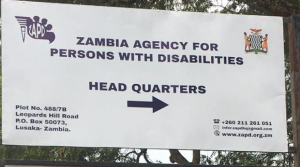Minister of Foreign Affairs and International Cooperation, Mulambo Haimbe, says the waive freeze on humanitarian assistance by the United States Department of State has been greatly welcomed by the government as it benefits more than one million Zambians accessing antiretroviral drugs (ARVs).
He has noted that the waiver covers lifesaving medicines and medical services, which have led to an increase in the country’s life expectancy, as well as food, shelter, and humanitarian assistance.
“This support granted to Zambia through the U.S President’s Emergency Plan for AIDS Relief (PEPFAR) was benefitting citizens through access to antiretroviral drugs,” he said.
Mr Haimbe has disclosed that Zambia receives approximately US$ 600 Million annual aid from the American people.
He said this when he presented a Ministerial Statement to Parliament on ‘The Possible Effect of the United States of America 90 Day Aid Freeze on Zambia’, today.
The Minister added that 75 percent of the total U.S. assistance to Zambia is channeled to the health sector, of which the biggest portion goes towards supporting the country’s HIV/AIDS response activities and health commodities.
He has further revealed that there are currently over 16,000 health and community health workers remunerated under these health programmes.
“This aid has led to a significant reduction in the maternal mortality rate and an increase in life expectancy in the country,” he said.
He has stated that the USA supports key sectors such as health, agriculture, education and governance, through various channels such as the USAID, Center for Disease Control and Prevention (CDC), Department of Defence, Peace Corps and the Millennium Challenge Corporation.
“As a way forward, The Ministry of Foreign Affairs and International Cooperation, Ministry of Finance and National Planning, Ministry of Health, Ministry of Tourism, Bank of Zambia and relevant stakeholders will continue to monitor the policy re-evaluation and realignment process in the USA in order to implement appropriate interventions and avert life-threatening occurrences,” Mr Haimbe noted.





